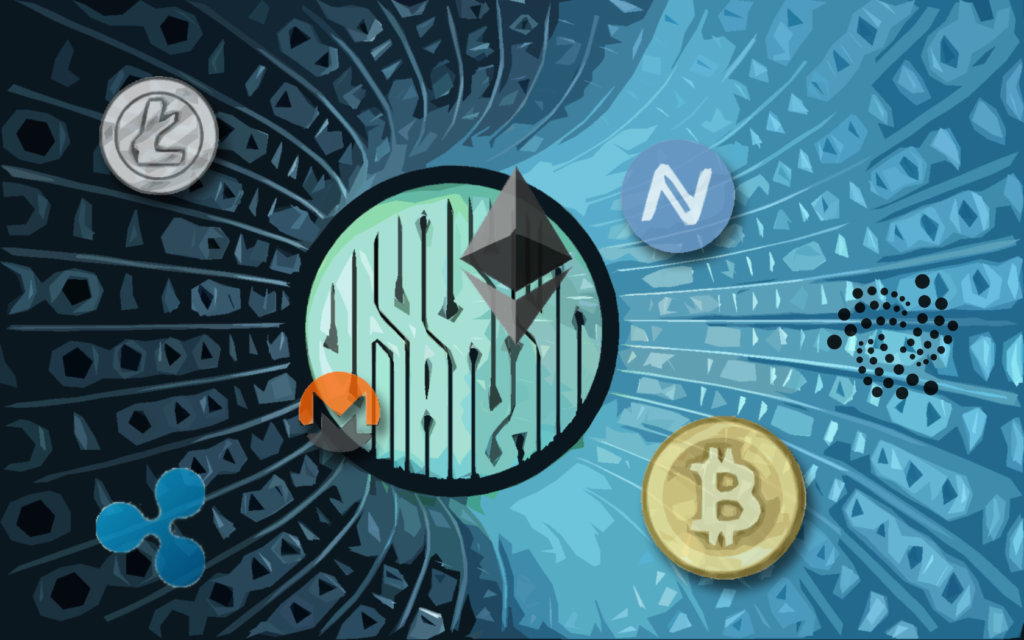Definition of cryptocurrency
Cryptocurrency is a digital means of payment for internet trading. It is a modern technology built on asymmetric encryption that allows money to be sent to the other party in a clear, authentic, confidential way. The first cryptocurrency- Bitcoin, clearly defined the basic rules and directions that all other cryptocurrencies are following. All cryptocurrencies are divided into 8 decimal places where one unit –1 Satoshi = 0.00000001 BTC. Satoshi is the smallest unit of each cryptocurrency.
Decentralization
Decentralization is one of the best advantages of cryptocurrencies. Cryptocurrencies functionality is operated by a p2p network (a network of nodes with equal access) that are deployed worldwide. In order to make changes, more than 50% of decentralized nodes have to agree on it.
Anonymity
Most of the cryptocurrencies offer anonymous transactions, which means that you are able to create a cryptocurrency account without submitting your personal data. Transactions that have been executed contain only encrypted address data and sums to be sent (eventually some note).
Transparency
All cryptocurrency transactions are publicly available (Blockchain). There, it is possible to see and check all the transactions from the beginning of the cryptocurrency till present.
Volatility
The value of the cryptocurrency which can be changed for classic FIAT money (Euro, Dollar) is fluctuating and unstable. It is determined by the popularity and capitalization of the cryptocurrency market.
Deflation strategy
The number of units of each cryptocurrency is predetermined therefore there is no way to fake, create or print new cryptocurrencies above the limit of their exact quantity. Cryptocurrencies have a tendency to gain value with the increase of users and capitalization.
Simplicity
Creating a cryptocurrency account is very easy. Bitcoin, for example, offers many different types of Bitcoin wallets that have a very easy registration (email, password). If you want only to accept cryptocurrencies, it is even easier. You can simply generate Bitcoin’s address on bitaddress.org without any registration and OFFLINE and then confidentially, securely save the password (Private key). In banks, on the other hand, there are many contracts, signatures, conditions, and zero anonymity.
Diversity
The concept of cryptocurrency is accurate, but the base bitcoin code is OPEN SOURCE, which means freedom to be spread with the ability to modify the code to different needs. This has conditioned the creation of new, different or even improved cryptocurrencies, which differ from each other by various modifications, coin numbers, mining strategies and also by functionality, significantly, and other aspects. Popular ALTcoins include Ethereum, Ripple, NEO, Litecoin, OmiseGO, Qtum, and others.
What is Blockchain?
You can imagine Blockchain as sort of a “Land register”. Who is registered in the land register as the owner of the land actually owns it? Who is registered in Blockchain as the owner of the cryptocurrency at this address actually owns it? Every NOD connection in the Bitcoin network has a copy of Blockchain. Currently, there are about 10,000 NODs in the network. This ensures the impossibility to change or modify Blockchain, as other NODs in the network would identify it immediately. The blockchain is publicly available on the Internet. It contains all transactions since its establishment till present.
Why use cryptocurrencies?
Thanks to cryptocurrencies, it is possible to make payments around the world at very low fees, while maintaining anonymity and transparency. It is possible to so-called “mine” cryptocurrencies (rent calculating a function of the computer, the units are cryptocurrencies). Cryptocurrencies are moreover used for the purpose of trading (currency exchange) and retention of value.
The functionality of cryptocurrencies?
Cryptocurrencies functionality is provided by a network of interconnected computers that constantly confirm and encrypt executed transactions, which are then written in the Blockchain account book. We can buy the cryptocurrency at the current rate, keep it (own it) and then sell it (exchange it) for another cryptocurrency or goods.
What is the difference between the money kept in the Bank and the money in the cryptocurrencies?
The bank offers a free client account where he/she will have his / her money, which in reality are owned by the bank and the client has only access to it! Cryptocurrency user, on the contrary, “creates” generates a pair of “keys” addresses and only announces to the Bitcoin network the Bitcoin address where Bitcoins can be assigned and owned.
How can you earn money?
Cryptocurrencies can be purchased, stored in a safe place and actually owned. After a certain period of time (1,6,12 months), the value of the dominant cryptocurrencies will be several times higher, and you will then sell them for a profit. Alternatively, you can trade with cryptocurrencies on crypto stock-markets and while applying the right strategy make a profit within a few days.
What is the difference between the private and public key?
On the page, https://www.bitaddress.org, you can actually create a Cryptocurrency account that consists of a pair of text chain “keys”. The Public key is a public Cryptocurrency address where Cryptocurrency can be sent and kept. It can be freely shared. The Private key is your private key “password” to Cryptocurrency stored in a paired public address. It can be converted to 12 English words, with the same way of using it. It’s the only identifier of your Cryptocurrency, therefore, it needs to be carefully guarded!
What is FORK?
If an agreement is made on a certain cryptocurrency that some part of the algorithm can be changed, it is possible, that a new cryptocurrency will be created by separating from the old one. Thanks to the copies of the Bookchain account book, cryptocurrencies both “current, and new one” will have the same history, and thus a newly established one will have the same number of coins as a mother cryptocurrency. After the FORK, cryptocurrencies will go their own way. Similar events have occurred in the crypto world several times: Ethereum-Ethereum Classic, Bitcoin-Bitcoin CASH,…act.








